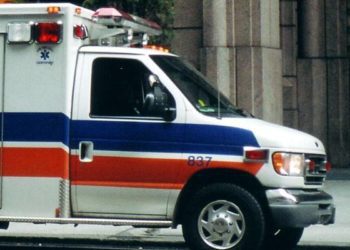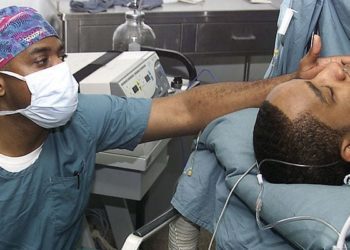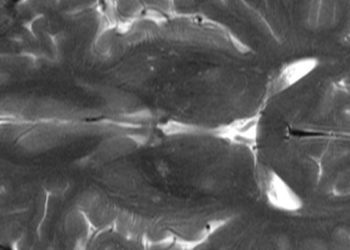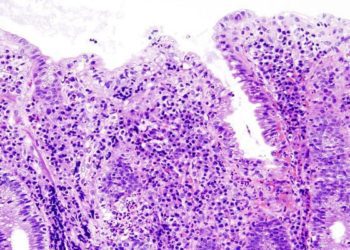Diphenhydramine, Sodium Bicarbonate, or Combination for Acute Peripheral Vertigo: A Randomized Clinical Trial
1. In this randomized clinical trial, combination therapy with diphenhydramine and sodium bicarbonate was associated with decreased vertigo compared to therapy with diphenhydramine alone.
Evidence Rating Level: 1 (Excellent)
Vertigo is characterized as a spinning sensation that is usually accompanied by nausea and vomiting, leading many patients to seek emergency care. In Taiwan, about 3% of adults experience vertigo, with frequent recurrences. In the emergency department (ED), the priority is to rule out serious central causes and alleviate symptoms quickly. Previous research has shown support for antihistamines; however, they often cause fatigue and increase fall risk, particularly in older adults. Another potential treatment option could be sodium bicarbonate, which is typically used to treat acidosis, but has shown potential to ease vertigo symptoms by improving inner ear blood flow and calming vestibular nerves. As such, this double-blinded randomized clinical trial compared sodium bicarbonate, antihistamines, and their combination for treating acute peripheral vertigo in the ED. Participants were randomized in a 1:1:1 ratio to receive either intravenous diphenhydramine (group A), sodium bicarbonate (group B), or both agents (group C). A total of 222 participants (mean [SD] age, 57.9 [17.6] years) were included in the study. Vertigo scores decreased by a mean (SD) of -4.4 (2.7), -5.1 (2.2), and -5.6 (2.1) in groups A, B, and C, respectively, with group C having significantly greater improvement than group A (P=.01). Fewer participants in group C required rescue therapy compared to group A (17.8% [13 of 73] vs 46.7% [35 of 75]; P<.001). Moderate lethargy was more frequently reported in the diphenhydramine groups (group A, 38.7% [29 of 75]; group C, 30.1% [22 of 73]) than in the sodium bicarbonate group (8.1% [6 of 74]; P<.001). Overall, in patients with acute peripheral, a combination of sodium bicarbonate and diphenhydramine provided greater symptom relief than diphenhydramine alone, and sodium bicarbonate alone was similarly effective while causing less lethargy.
Click here to read this study in JAMA Network Open
Image: PD
©2025 2 Minute Medicine, Inc. All rights reserved. No works may be reproduced without expressed written consent from 2 Minute Medicine, Inc. Inquire about licensing here. No article should be construed as medical advice and is not intended as such by the authors or by 2 Minute Medicine, Inc.









